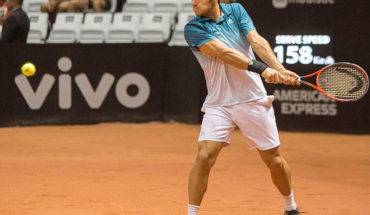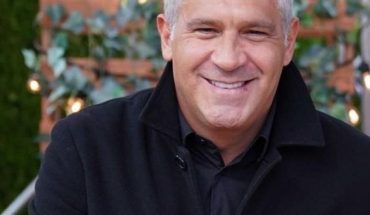“We do not want an armed forces that is passed to the opposition, want an armed forces that is passed to the Constitution”.
With these words the President of the National Assembly (AN) approached of Venezuela his country’s military to ask them take position in the conflict emerged between the legislative branch, controlled by the opposition, and the Executive, controlled by Nicolas Maduro.
The expression, however, does not belong to the current President of the AN, the Deputy Juan Guaidó, who last January 23 was sworn as President of Venezuela in an act described by the President Nicolas Maduro as a “coup attempt”.
The phrase corresponds to Julio Borges, Congressman who served as Chairman of the AN in 2017, and was pronounced as part of the wave of anti-Government protests that rocked Venezuela this year.
Its similarity to the so-called making two years later guided reveals not only the stagnation in the clash of powers that Venezuela has lived since in 2016 the opposition took control of the AN, but also the central role attributed to the national armed forces Bolivarian (possibility) in the definition of the crisis that is shaking the country.
“The United States Government sees in Venezuela a cheap victory because the mature regime no longer has force” what will happen now? 4 possible scenarios for the political crisis in Venezuela, the situation has changed. While protests were responding to the decision of the Supreme Court of Justice stripped of powers to AN in 2017, in 2019 discontent stems from the assumption by Maduro for a second presidential term to which he was elected in elections which the opposition stigmatizes fraudulent.
Another difference is that now the conflict has led to a high involvement of the international community. United States, the European Union and most of the countries of Latin America have decided to ignore the Government’s ripe; While Russia, China, Turkey and other countries in the region such as Bolivia, Nicaragua and Cuba support President Chavez.
But there are things that, until now, does not seem to have changed: the military support to the Government of Maduro.
“The soldiers of the homeland do not accept a President imposed in the shadow of dark interests or self-proclaimed on the fringes of the law. The possibility defend our Constitution and is the guarantor of national sovereignty”, said Minister of Defense of Venezuela general Vladimir Padrino Lopez, the swearing in of guided day.
Since then, only dropping out at rows of chavism public was the military attaché of the Embassy of Venezuela in Washington, Colonel José Luis Silva Silva, who recorded a video in which announced its appreciation to the President of the AN as in charge of Venezuela.
Mature, for its part, has devoted the past four days to perform acts in the forts and barracks to demonstrate the backrest which has among the uniformed.
Would he do it?
Incentive loyalty Phil Gunson, senior analyst for the International Crisis Group Research Centre, points out that with the coming to power of the deceased President Hugo Chávez, the Venezuelan military left the barracks to occupy positions of remote control in other areas.
“Before the soldiers were more or less confined to the barracks, but Chavez let them out and gave them access to positions in the Cabinet, as well as the control of banks and other financial services”, said it Gunson to the BBC.
Rocío San Miguel, Director of the Venezuelan NGO watch, points out that chavism has used three different ways to ensure the backing of the military. One of these is what is referred to as “loyalty incentives”.
“It is a route that Chavez had already advanced from his rise to power and which meant, first of all, join the military activities of the bureaucracy, in which huge amounts of money are handled. It is a mechanism that has been perfected in the Government of Maduro, who expressed it very clearly with the increase of Ministers in the Cabinet,”said San Miguel in conversation with BBC world.
According to Social Watch, uniformed in mature Government Ministers passed represent 25% of the Cabinet to 48%, between 2014 and 2017.
The expert indicates that in 2018, that percentage dropped again to 25% due to the change in the situation in the country.
“Before the soldiers were more or less confined to the barracks, but Chavez gave them access to positions in the Cabinet” Phil Gunson, analyst at International Crisis Group “the military already not bureaucratic charges interest them because in the ministries already there money. Then, the political line of the economic incentives for loyalty began to be managed through three lines linked to bureaucracy: State oil company PDVSA, directed by a general in the National Guard; the State mining company Camimpeg, which is under a general of the army; and administration of the great mission supply sovereign (GMAS), Defense Minister Vladimir Padrino Lopez addresses her directly”.
San Miguel highlights that the GMAS is in charge of the importation of food to the country, something that involves managing large amounts of foreign currency, while Camimpeg, was created in 2016 and its management was handed over for 50 years to the national armed forces, whose troops make up entire structure.
Discipline and punish the arrival of Chavez to power also meant, according to Gunson, the application of a purge within the possibility in order to ensure that the commanders were aligned with their ideas of the left.
This screening was done in one fell swoop but was progressive and had different times.
Over these 20 years many official high which could be critical of the ideological seed chavism trying to sow in the barracks were going to retreat. Some quietly and others as uproarious, general Raúl Isaías Baduel, who was responsible for return to Chavez in the Presidency when it was overthrown in 2002 and then was his Minister of Defense.
During his speech go to retirement, in July 2007, Baduel formulated critique of capitalism of State and recalled the failure of real socialism, which was the first public indicator that had opened up a gap between him and Chavez.
Months later, opposed the project of constitutional reform that the President pushed to establish, among other things, the indefinite re-election.
Not long after, the military prosecutor’s Office opened an investigation against Baduel, who was arrested in 2009 and sentenced to eight years in prison for acts of alleged corruption. He attributed the ruling to his criticisms to the Government. “I’m a prisoner of Chavez,” he said.
According to Rocío San Miguel, the Venezuelan military are under the surveillance of intelligence apparatus and Counterintelligence used to detect those who have any attitude against the Chavez revolution, who then suffer the consequences.
“In a first stage that meant the separation of charges and the lack of allocation of charges officers. Then came the adoption of resolutions which gave low massively to the military. That was unprecedented in contemporary history. And in recent years even the sentence of freedom for some groups of officers in exemplary manner”, says the expert.
“Mature advanced in a deeper stage which was extended criminalization. Deprived of freedom to many troops, most of them for political offences, and even last year became an unpublished fact that was degrading and expel from the possibility to command officers for political crimes. In the past, the degradation only occurred for drug cases”, he points out.
According to estimates by Social Watch, between 2018 and 2019 there have been approximately 180 military personnel who have been deprived of their liberty for political reasons.
Homeland or jail “The national armed force is essentially professional institution, without political militancy”.
“The or the members of the national armed forces in situation of activity have right to vote in accordance with the law, unless it is allowed to choose in charge of popular election, or participating in acts of propaganda, militancy or political proselytizing.”
Previous fragments are extracts from articles 328 and 330 of the Constitution of Venezuela.
However, now deceased President Hugo Chávez prompted the identification of the possibility with its Socialist proposal since the middle of the last decade.
Then, in the Venezuelan barracks began to apply the motto of “homeland, socialism or death”. And in a few years, in their speeches many generals remarcarían on a daily basis that they were “Socialist, revolutionary, Chavez and anti-imperialist”.
In fact, in its profile of the general Twitter Godfather Lopez is defined as “soldier bolivariano, determined and convinced to build the socialist homeland”.
Rocio San Miguel believes that the possibility has become in these years in “the military apparatus of the revolution”.
“It is a personalistic force that does not respond to the State or the Constitution, but parties and people, just what the Constitution forbids,” it says.
At the time, Chavez justified the use of the controversial slogan, with the argument that the soldiers “they are aware that only through socialism we will have homeland, is a Patriot soldier”.
Ideologies aside, Phil Gunson ensures that some military want to keep things as they are because they are making profits.
“Especially the high range, would like some this to continue because they are making money, but also because they are in very compromising situations”, He said.
Mature deprived of freedom to many troops, most of them for political crimes”Rocío San Miguel, Director of the Venezuelan NGO watch”If your official is corrupt and your intelligence bodies are kept informed about who is stealing, then you build large files on each individual making it very difficult for them to change sides”, Gunson said.
He added that there are other cases of officials who have been involved in human rights violations and who fear that if the Government falls, they end up prisoners.
The opposition has offered an amnesty to the military that collaborate to “restore constitutional order” in Venezuela.
However, so far, it is not entirely clear what the scope of this standard and experts have expressed serious doubts that could apply to those accused of human rights violations, because they are persecuted by law offences international and not prescribed.
In their public messages, Godfather has justified the military support to ripe in terms entirely different to those used by Gunson and San Miguel.
The general asserted the legality of the election of Maduro as President in may 2018 and has shown it, therefore, as an act of adherence to the Constitution.
“There is a leadership United around the Constitution, laws and institutions and under the command of @NicolasMaduro, President elected by the people in the exercise of its sovereignty,” he said in a Tweet posted last Sunday.
In any case, if the military support to mature were based only on obtaining benefits and perquisites, San Miguel says it would be a small group, as most of suffer – as the rest of the population–see the rigors of the economic crisis ezolana.
“97% of the possibility is affected in the same way as is the rest of the society. The remaining 3% are people of the possibility having access to enormous sources of economic resources in various ways, legal and illegal,”he said.
The expert indicates that it is not yet known what direction take the military to the new situation.
“I can assure you that the crisis is a huge magnitude in the bosom of the armed forces. It remains to be seen if the possibility is a way of expressing support to the rest of the population. That does not necessarily have to be a military decision. Another way would be to fail to repress the population”, he concludes.





